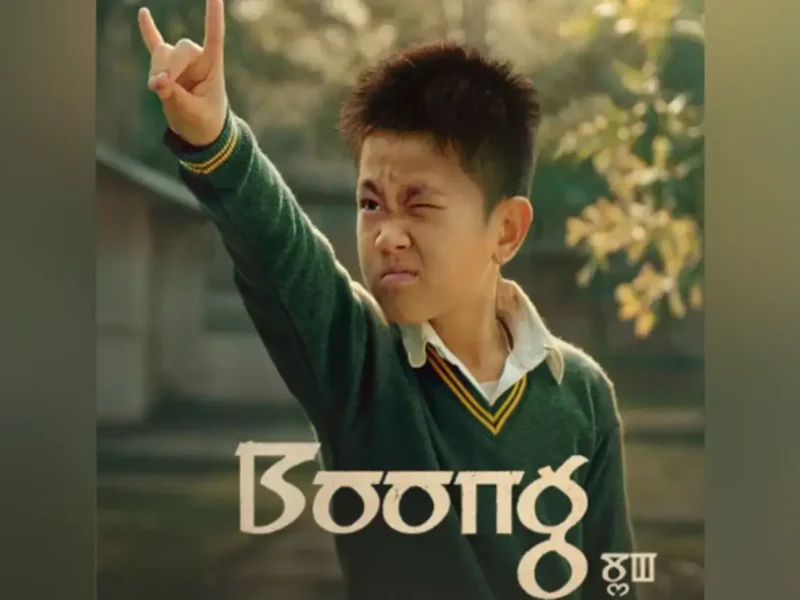
USCIS Announces New Policy to Give Work Authorization to U Visa Applicants, Given to Victims of Domestic Violence and Crime
US Citizenship and Immigration Services has announced a new policy to provide work authorization to some U visa applicants, allowing them to gain stability as they wait for their applications to be processed. Maitri, a free, confidential, nonprofit organization based in the San Francisco Bay Area that helps Indian Americans and South Asians facing domestic violence, emotional abuse, cultural alienation, or family conflict, also assists with screening tools for U visas. (Facebook photo/maitribayarea)
By SUNITA SOHRABJI/India-West Staff Reporter
US Citizenship and Immigration Services announced June 14 a new policy to provide work authorization to some U visa applicants, allowing them to gain stability as they wait for their applications to be processed.
The agency announced that it is updating the USCIS Policy Manual by introducing a new employment authorization process for U visa petitioners with “pending bona fide petitions who meet certain discretionary standards.”
The U visa is given to victims of violent crime, survivors of domestic violence, and human trafficking victims. Petitioners who receive U visas must cooperate with law enforcement officials to prosecute perpetrators of violent crime, domestic abusers, and human traffickers, among others.
USCIS clarified the criteria necessary for a “bona fide petition,” noting that the victim must properly file an I-198 application, and provide a personal statement on the nature of the abuse.
The American Immigration Council further defined U visa eligibility. Victims must be able to demonstrate that they have suffered “substantial physical or mental abuse” as a result of rape, torture, trafficking, incest, domestic violence, sexual assault, abusive sexual contact, prostitution, sexual exploitation, female genital mutilation, being held hostage, peonage, involuntary servitude, slave trade, kidnapping, abduction, unlawful criminal restraint, false imprisonment, blackmail, extortion, manslaughter, murder, felonious assault, witness tampering, obstruction of justice, perjury, or attempt, conspiracy, or solicitation to commit any of these crimes.
Currently, only 10,000 U visas are given out each year; USCIS has a backlog of 270,000 applications. During the Trump administration, U visa petitioners were often deported by Immigration and Customs Enforcement, even as they waited for their applications to be approved.
“This new process will allow eligible petitioners access to more timely employment authorization, which will provide these victims of crime more stability as they rebuild their lives, and will better equip them to cooperate with and assist law enforcement in investigating and prosecuting crime,” said USCIS in a statement.
Currently, U visa petitioners are waiting at least five years before receiving a decision permitting them access to an employment authorization document. “During this wait time, they face vulnerabilities, such as financial instability and fear of deportation. Through this policy update, victims will receive, without extensive delay or lengthy wait times, the stability they need while they work with law enforcement. This increase in victim cooperation will further fortify law enforcement’s ability to protect and secure communities throughout the United States,” noted USCIS.
Aaron Reichlin-Melnick, policy counsel at the American Immigration Council, tweeted June 14: “The current U visa process is so broken that an applicant has to wait from 4-6 years just to have USCIS determine if their application is bona fide, then wait another 15 years for a visa. Today’s policy change eliminates that first delay. Only Congress can fix the second.”
Reichlin-Melnick noted that USCIS is currently processing applications for U Visas that were filed on June 30, 2016: “Nearly five years delay from the time the application was filed until the point that an applicant can get any benefit.”
“The new policy change will fix this absurd outcome,” he tweeted, adding that the challenge was how to fix the backlogs.
USCIS Acting Director Tracy Renaud said in a statement: “It is unfortunate for anyone to have suffered or witnessed criminal activity, but even more so when they are not familiar with the country and lacking necessary support in their quest for justice.”
“This bona fide determination process will allow U visa petitioners to work and remain safely in the United States while they provide valuable support to law enforcement to detect, investigate or prosecute the serious crimes they have survived or witnessed.”
In related news, Maitri, a free, confidential, nonprofit organization based in the San Francisco Bay Area that helps Indian American and South Asian families facing domestic violence, emotional abuse, cultural alienation, or family conflict, also assists with screening tools for U visas.
The nonprofit recently held its first virtual gala, which featured a lineup of star power, a cocktail kickoff, and energetic bidding at a silent auction.




